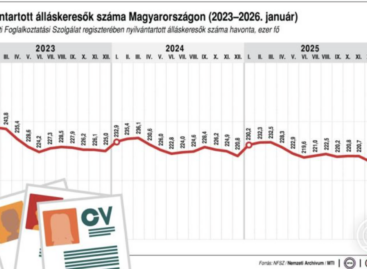Nearly half of Generation Z would stay at one company for 3-4 years and would rather gain experience in multiple places
Generation Z is now setting the pace in the domestic labor market, according to SteiGen’s latest, representative research, which examined the values, expectations, and career strategies of young employees. According to the results, companies need a radically new approach: for Gen Z, the career path can be maximized in 3-4 years, and instead of loyalty, development and self-identity have become primary values.

According to the research, for young people, private life comes before work, and the goal is to create a “private-work” balance, not the other way around. While Generation X was built on stability and loyalty, Generation Z is already thinking in terms of “short-term project careers”: if they don’t see any opportunity for advancement after three years, they will change.
The change in motivations is also clear: 32% of Generation Z members desire recognition, while in previous generations this ratio ranged between 20–23%. For them, security does not mean long-term employment, but visible development – that progress can be felt in the short term.
“Generation Z has learned that one-sided loyalty is not rewarding for them. They probably learned a lot from the example of their parents, who remained loyal to their employer, but were fired in a forced situation”
– said Krisztián Steigervald, founder of SteiGen.
The survey highlights that Generation Z is not freedom-loving, but rather a believer in security and plannability – they choose stability over autonomy three times more often than the veteran generation. For them, a successful career and starting a family are not mutually exclusive goals, but life strategies that can be built in parallel.
According to the research, companies must be prepared for the fact that retaining young employees does not depend on long-term loyalty programs, but on flexible development opportunities, real recognition and self-identical management communication.
Related news
Hays Hungary: Hungarian companies expect a much more cautious increase in staff numbers this year
🎧 Hallgasd a cikket: Lejátszás Szünet Folytatás Leállítás Nyelv: Auto…
Read more >Generation Z: new rules on the labour market
🎧 Hallgasd a cikket: Lejátszás Szünet Folytatás Leállítás Nyelv: Auto…
Read more >Related news
A colourful selection of sauces on the Easter table
🎧 Hallgasd a cikket: Lejátszás Szünet Folytatás Leállítás Nyelv: Auto…
Read more >NGM-VOSZ cooperation agreement for digital commerce security
🎧 Hallgasd a cikket: Lejátszás Szünet Folytatás Leállítás Nyelv: Auto…
Read more >







